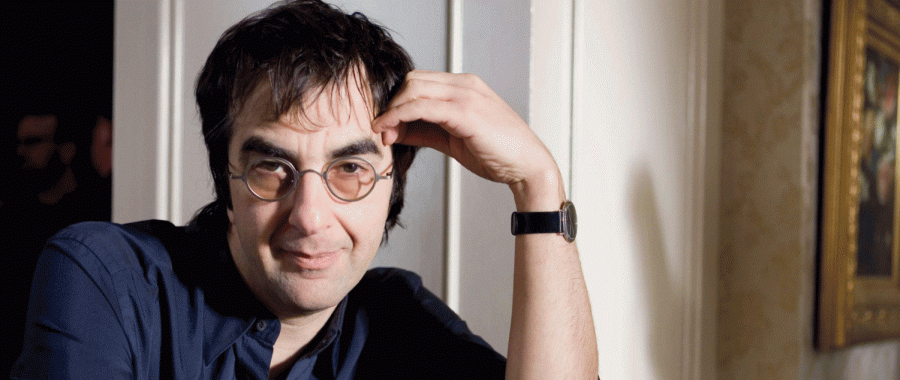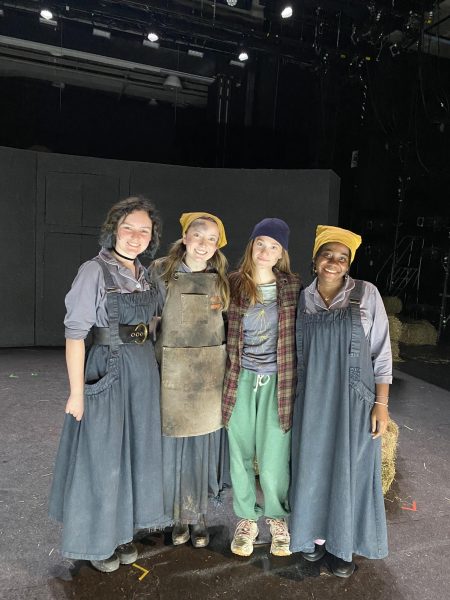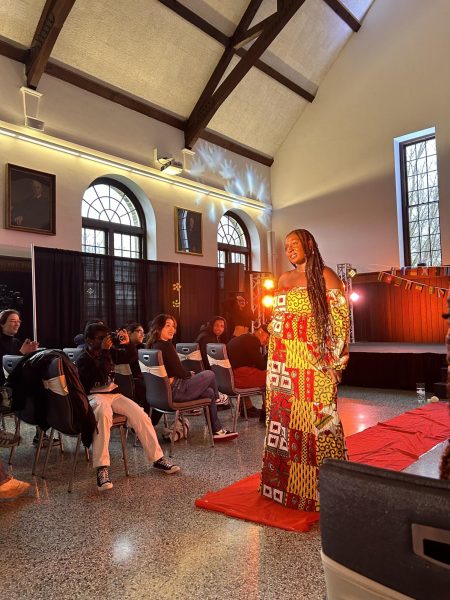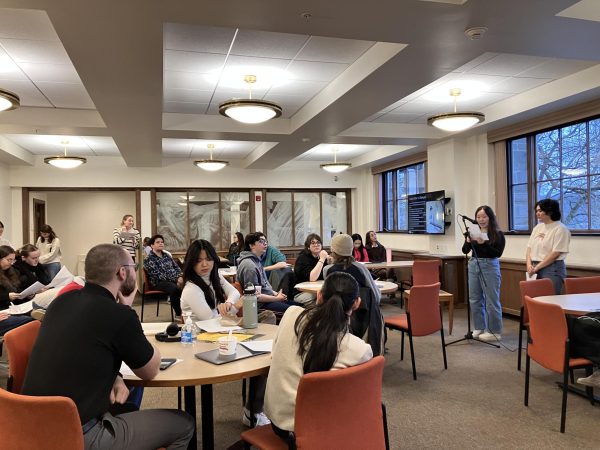Calendar Commemorates Centennial
Friday April 3 in Golden Auditorium, the film Calendar was shown as part of the weekly Friday Night 35mm Film Series. This film was presented in commemoration of the centennial of the Armenian Genocide. The event was co-sponsored by the Colgate Arts council as well as Art and Art History, English, History and Peace and Conflict Studies departments.
The fiction film stars director Atom Egoyan as a photographer who has been hired to capture images of Armenian churches for a calendar. His wife, played by his real-life wife Arsinée Khanjian, accompanies him on his journey to Armenia as a translator. As they travel with their Armenian guide, their relationship begins to break down. The film goes back and forth between scenes in Egoyan’s Toronto apartment after the trip and footage from the couple’s travels in Armenia. It also consists of a series of telephone messages left for Egoyan by his wife. The first message is left on April 24; an obvious connection is the anniversary of the start of the Armenian Genocide on April 24, 1995. Egoyan has returned to Toronto without his wife. She remained in Armenia where she has fallen in love with their Armenian guide and reconnected with her roots.
Egoyan, who is an Armenian, Canadian citizen and born in Egypt, often has films that deal with themes of exile and identity construction which were particularly evident in Calendar and central in the couple’s struggle to relate to one another in their ethnic homeland. One stark contrast between Egoyan and his wife was Khanjian’s ability to speak Armenian, allowing her to experience, more intimately, the stories the Armenian guide shared. She felt the importance of the religious places they visited, while Egoyan saw them as pretty pictures, due to his inablitiy to speak the native language.
“I thought the way the film approached the growing separation both emotionally and physically, between Egoyan and his wife was fascinating,” sophomore Kathryn Deaton said. “The viewer was able to visualize the separation.”
Egoyan and his wife never physically appeared in a scene together. Egoyan remained behind the camera in all of the footage shot in Armenia. This brought the emotional separation and diverging identities experienced by Egoyan and his wife to life on screen.
The struggle to construct one’s identity in exile was most prominent in the final scenes of the film. Egoyan has a woman in his apartment. He asks her how she identifies herself. She says that she considers herself to be Egyptian even though she lives in Canada. Egoyan describes his inability to see himself as Armenian; his grandfather might be Armenian, but he is not comfortable identifying in that way. This inability to identify as Armenian is what ultimately drives he and his wife apart. The issue of identity was part of a core issue in the Armenian Genocide.
“I think this film was a good introduction to the programming commemoration of centennial of the Armenian Genocide.” sophomore Allison Zengilowiski said.
This film was followed by Egoyan’s visit to campus. His film Ararat was screened and accompanied by a discussion of the film with the director and Donold M. and Constance H. Rebar Professor in Humanities, Professor of English and Director of Creative Writing Peter Balakian.







